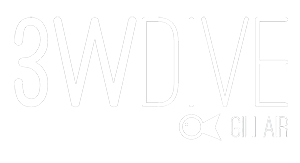by Margot McManus
So you’ve fallen in love with diving (who can blame you?), and you’re looking to take it a step further while doing your part to protect our oceans. If you’ve done your research, you’ve probably noticed that diving internships with a focus in marine conservation are becoming increasingly popular. This is for a number of reasons, aside from the obvious demand for marine conservation efforts. With all the opportunities out there, you’re probably wondering how to decide which program is right for you. Or what you should be looking for when picking a marine conservation diving internship. We’re here to give you a quick intro to conservation diving internships, why you may want to do one, and what you should know when looking for a program that’s the right fit for you.
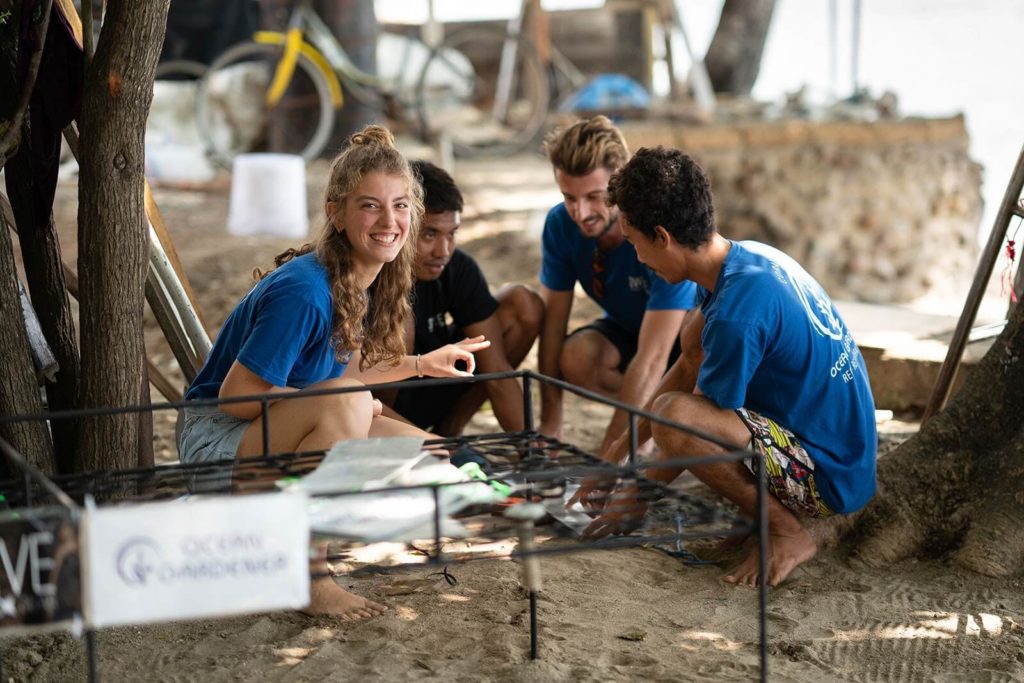
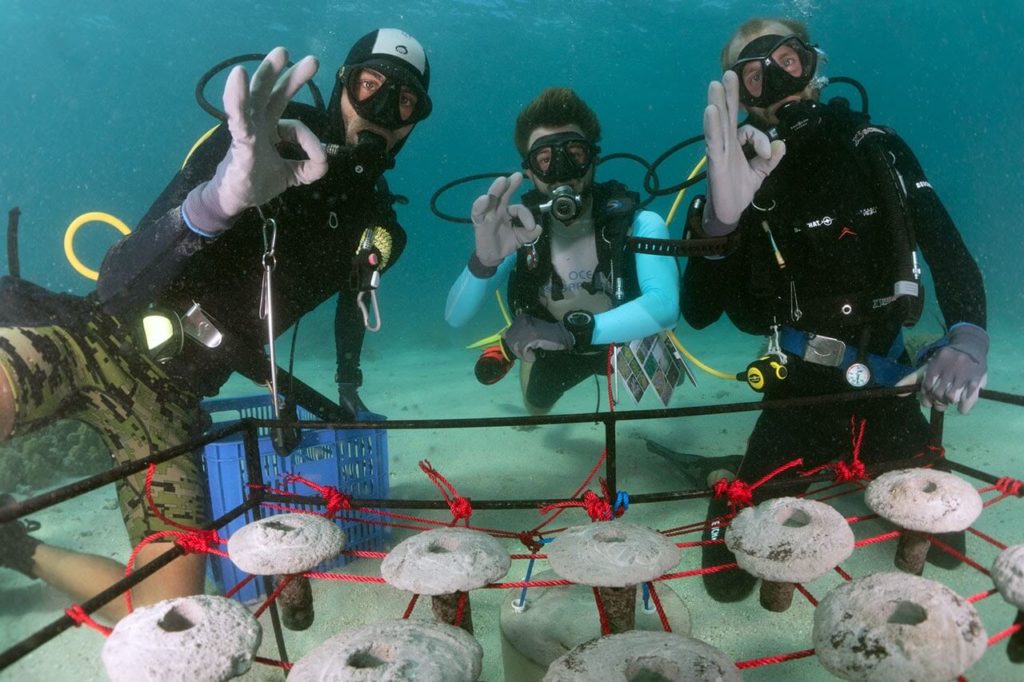
Why do a marine conservation divemaster internship?
Coral reefs are known to contain the largest diversity of marine life and produce more renewable energy than any other marine ecosystem. Covering less than 1% of the ocean floor, coral reefs support an estimated 25% of all marine species. If you’re reading this then you’re probably already on the path toward marine conservation and don’t need any convincing. If not, we expand a little more on this topic in our blog post “Coral Conservation in the Gili Islands”.
Starting a career in conservation diving
You may be asking yourself: “I know I want to help, but how can I make sure I’m really making a difference?” Good news is, you’ve got plenty of options and resources to guide you. As the largest wildlife habitat on the planet, diving can take you almost anywhere in the world, and learning to dive is an extremely valuable skill when it comes to marine conservation. Being divemaster certified opens up a lot of doors to jobs and career possibilities in the marine conservation world. Doing a marine conservation diving internship is a great way to get your feet wet when starting your conservation diving career.
When doing a conservation diving internship, you’re often participating in research toward reef conservation efforts. By doing this you’re expanding your coral reef knowledge, learning to survey fish and ecosystems, and are often in close collaboration with local ocean communities. These are all great first steps to be taking when starting your diving conservation career.
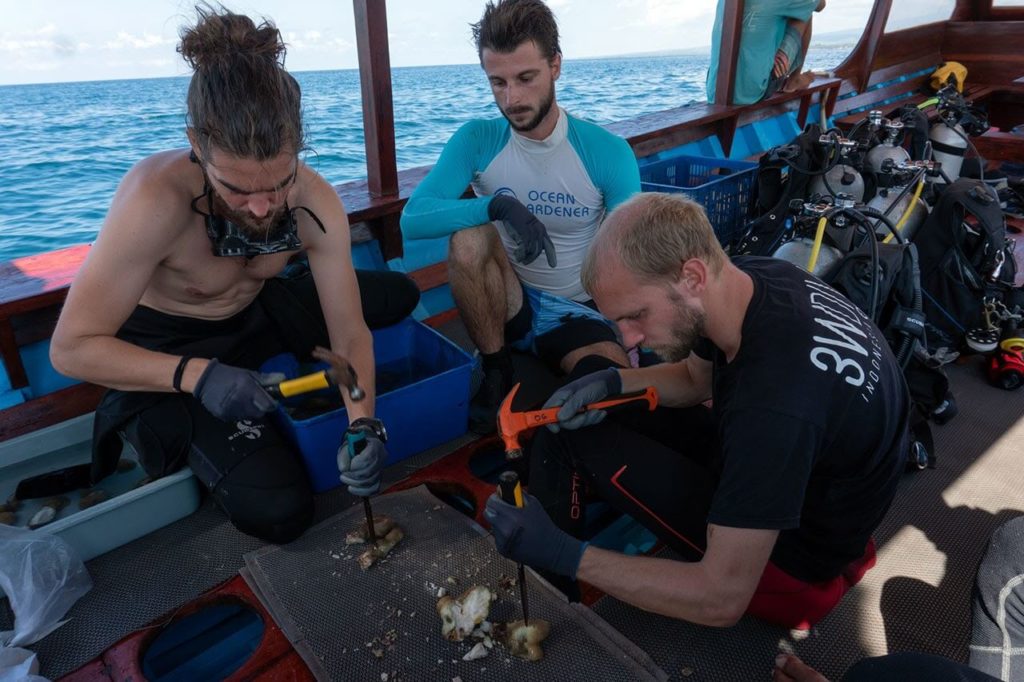
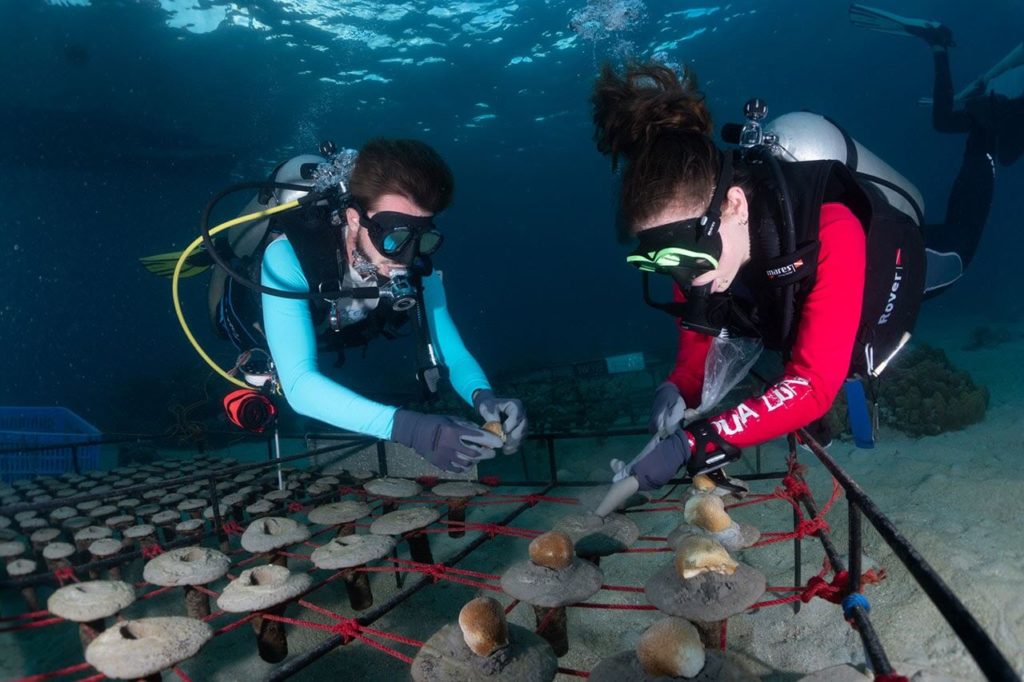
How do I know if I’ve picked the right internship?
With all the choices available, it can be hard to distinguish which internship programs may be more effective toward actual conservation efforts. So here’s a few tips on how to do your research when it comes to marine conservation diving internships.
The best way is to reach out to people who have done the same internship. In the digital age, it’s fairly easy to reach out to people online. Most of the time people are more than willing to respond, especially if they had a good experience. You can also ask the dive shop or organization for references or contacts of past interns. This way you can get more of a sense of what you’ll be doing and ask more specific questions from an unbiased party. But before doing this, ask yourself what you’re looking for and what kind of experience you want to gain. This way you’ll know what you’re looking for when doing your research.
The best way is to reach out to people who have done the same internship. In the digital age, it’s fairly easy to reach out to people online. Most of the time people are more than willing to respond, especially if they had a good experience. You can also ask the dive shop or organization for references or contacts of past interns. This way you can get more of a sense of what you’ll be doing and ask more specific questions from an unbiased party. But before doing this, ask yourself what you’re looking for and what kind of experience you want to gain. This way you’ll know what you’re looking for when doing your research.
If you’re relatively new to the diving and marine conservation world, do your research. This will allow you to have a better idea of what kind of work marine conservation internships usually involve. For example, what kind of research needs to be done in specific climates and environments, and how this work is usually carried out. Are you more interested in fieldwork? Data collection? Do you want more hands-on experience such as coral farming or are you more interested in analytics and carrying out research and reports? These are all things you should have in mind when beginning your search.
Another very important factor is location. Wherever you are in the world, for the most part, the climate will dictate what sort of research you’ll be carrying out. For example, marine conservation in the Meditteranean will more likely be guided toward the protection of endemic and emblematic species of global conservation concern, whereas most conservation efforts in Southeast Asia will be more coral reef focused.
Lastly, reach out to who you’ll be working with to see if it’s the right fit. You’ll most likely have some sort of communication with the shop and program directors before accepting to do an internship with them. This is your chance to ask all your questions and see if the program seems right for you.
Another very important factor is location. Wherever you are in the world, for the most part, the climate will dictate what sort of research you’ll be carrying out. For example, marine conservation in the Meditteranean will more likely be guided toward the protection of endemic and emblematic species of global conservation concern, whereas most conservation efforts in Southeast Asia will be more coral reef focused.
Lastly, reach out to who you’ll be working with to see if it’s the right fit. You’ll most likely have some sort of communication with the shop and program directors before accepting to do an internship with them. This is your chance to ask all your questions and see if the program seems right for you.
This is important. Because although the program may seem great from the outside looking in, you want to make sure that the program is solid once you’re on site. This can help ensure that you won’t end up doing something over and over without learning much. It can be difficult in the digital age to distinguish between programs that look really great on the surface but are ultimately designed for profit, and more authentic internships that may have less funding. Make sure that whatever the endeavor may be, that the program can promise real results towards what you want to learn and accomplish. So dive in with who you’ll be working with and get a clear explanation of what is offered and what there is to learn from the experience.
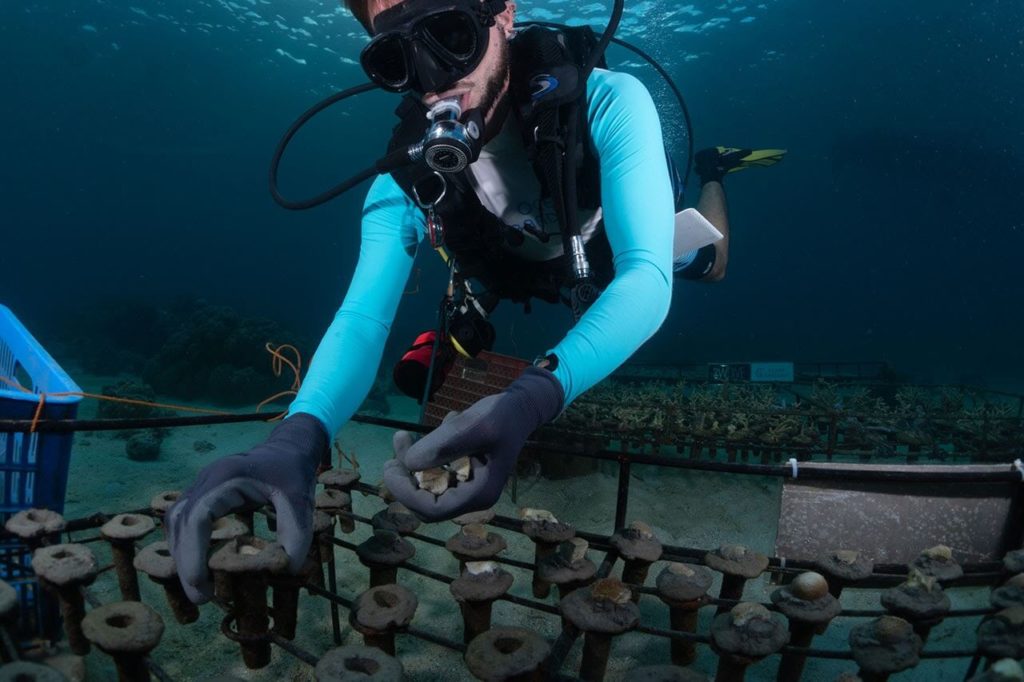
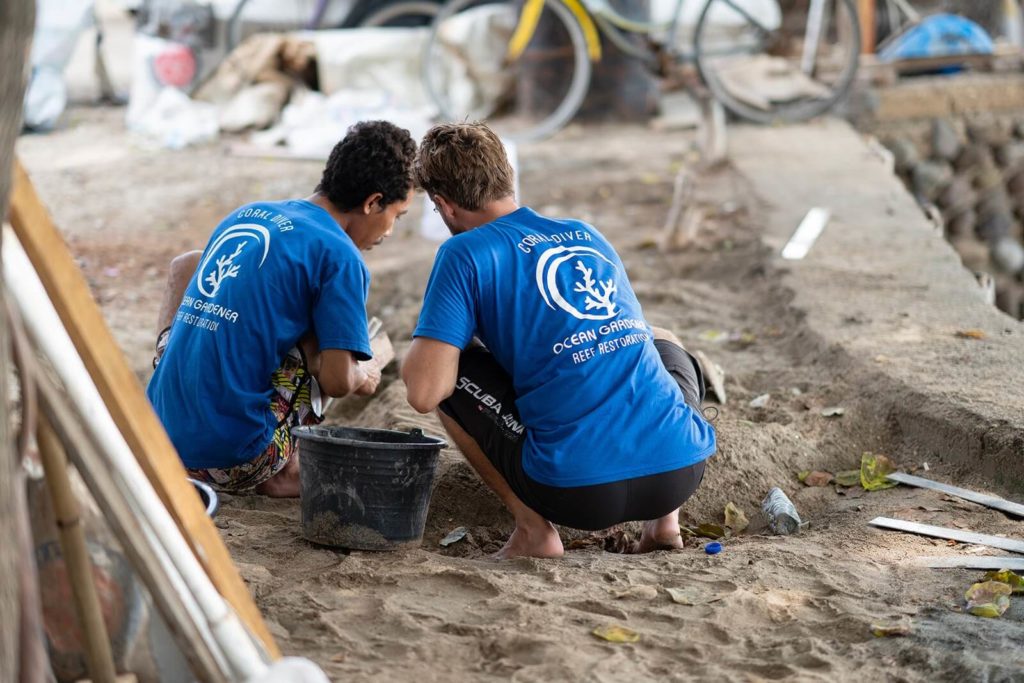
The search for your marine conservation diving internship
Hopefully you’ve got more of an idea of how to begin your search as well as what you may be looking for. If you weren’t sure about whether you wanted to do a marine conservation diving internship or not, we hope this post provided some insight on where conservation diving internships can take you.
If you’re considering diving in Indonesia, check out our blog to learn more about the Gili Islands and the divemaster marine conservation internship with 3W.
If you’re considering diving in Indonesia, check out our blog to learn more about the Gili Islands and the divemaster marine conservation internship with 3W.
